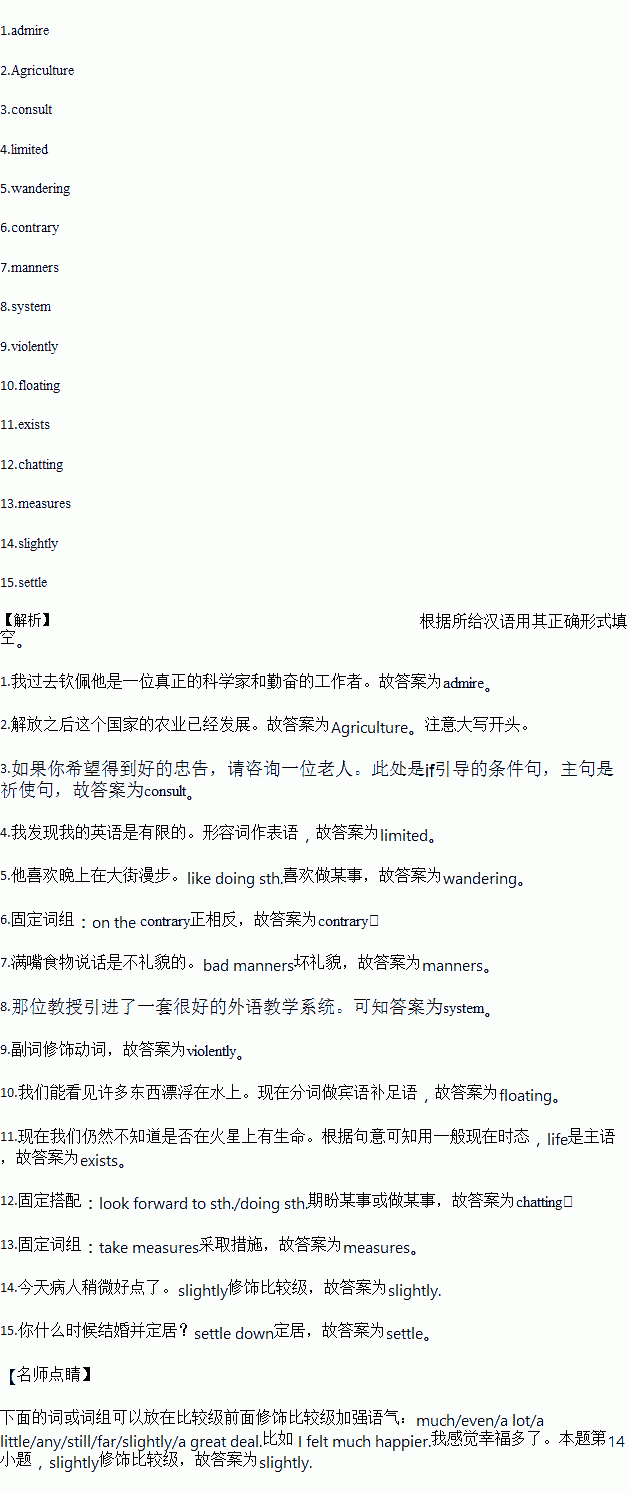题目内容
1.I used to ____________(钦佩)him as a true scientist and a hard worker.
2._____________(农业)in this country has developed after liberation.
3.If you wish for good advice, ____________(咨询) an old man.
4.When I arrived in the USA , I found my English was very __________(有限的).
, I found my English was very __________(有限的).
5.He likes _______________(徘徊, 漫步)in the street at night.
6.You didn’t bother me. On the ___________(相反), I like to be with you.
7.It is bad _____________(礼貌)to speak with your mouth full.
8.The professor has brought in a good __________(系统) of teaching languages from abroad.
9.He doesn't like to behave __________(激烈地); instead, he prefers to solve the problem in peace.
10.The river is so polluted that every day we can see a lot of things ________(漂浮)on the water.
11.Now we still don’t know whether life __________(存在)on Mars.
12.I am looking forward to __________(闲聊)with you on the internet.
13.We need to take ___________(措施) at once to prevent the growth of the population in China.
14.The patient is __________(稍微) better today.
15.When are you going to marry and __________(定居) down?


 powerful story of brotherhood, bravery and understanding carried out.
powerful story of brotherhood, bravery and understanding carried out.